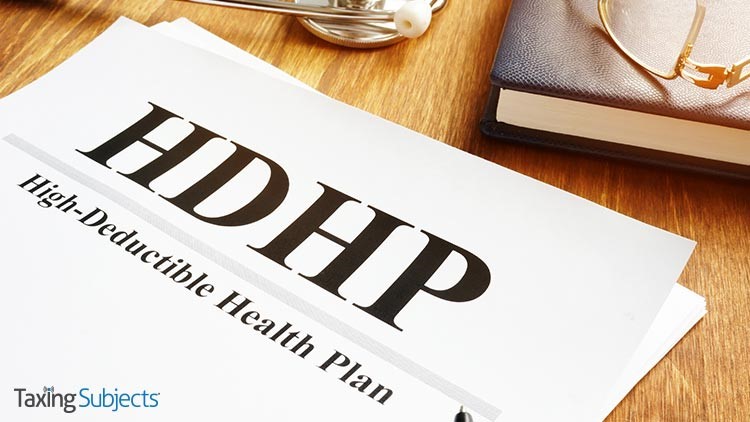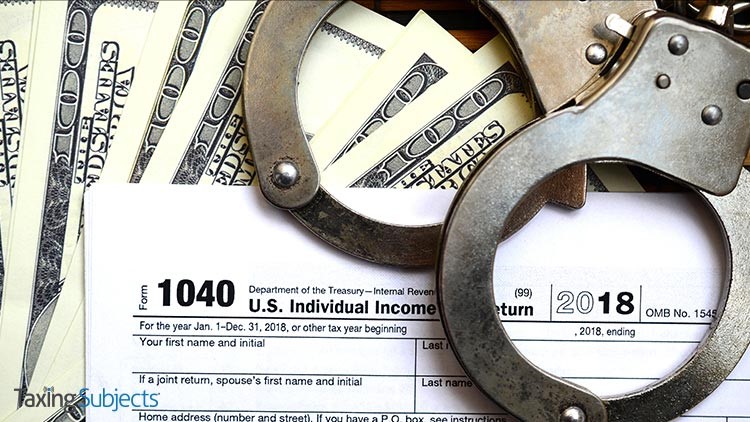by | Mar 16, 2020 | Tax Tips and News
With the United States beginning to feel the effects of the coronavirus pandemic, many taxpayers will have to confront another harsh reality: how to pay for the advanced medical care that could be needed to save their lives.
Some help on that front comes from an IRS ruling that says high-deductible health plans, known as HDHPs, can indeed pay for related testing and treatment of the 2019 Novel Coronavirus known as COVID-19, without jeopardizing the status of the plan.
The ruling also means an individual with an HDHP that covers coronavirus costs may continue to contribute to an HSA or health savings account.
The IRS decision is outlined in Notice 2020-15, which has been posted on IRS.gov. The agency says health plans otherwise qualifying as HDHPs won’t lose that status just because they cover the cost of testing or treatment related to COVID-19 before deductibles have been met. As in the past, any vaccination costs continue to count as preventive care and can also be paid by an HDHP.
It should be noted that Notice 2020-15 applies only to HSA-eligible HDHPs. Employees and other taxpayers in any other kind of health plan should contact their plan administrators or providers with any specific questions about what their plan covers – and doesn’t.
– Story provided by TaxingSubjects.com
by | Mar 13, 2020 | Tax Tips and News
IRS Direct Pay can help taxpayers avoid an estimated tax penalty.
If any of your clients make two thirds of their gross income from farming or fishing, they may need to file a Form 1040 and pay tax due on Monday. Affected taxpayers who miss the deadline could owe an estimated tax penalty.
The IRS recently issued a press release reminding farmers and fishermen about the March 2 filing and payment deadline for those who do not make quarterly estimated payments throughout the year. (The deadline for farmers and fishermen who make estimated payments is April 15.)
To simplify the process, the IRS says that farmers and fishermen who need to meet next week’s deadline can make a payment with IRS Direct Pay: “Anyone can use this free online service to quickly make federal individual income tax payments or quarterly estimated tax payments directly from their checking or saving account.” The agency also stressed that there are no signup fees or pre-registration requirements, making it even simpler.
While taxpayers can use IRS Direct Pay to settle their individual income tax bill, it will not accept payments for “federal highway use tax, payroll taxes, or other business taxes.” To make those payments, the IRS suggests using the free Electronic Federal Tax Payment System.
For more information about taxes for farmers and fishermen, the IRS provided two links: Tax Topic 416 and Publication 5034.
Source: IR-2020-37
– Story provided by TaxingSubjects.com
by | Mar 13, 2020 | Tax Tips and News
The federal office tasked with overseeing the Internal Revenue Service says fraudulent claims for refundable credits are going through – in spite of the tools Congress gave the agency to stop them.
The Treasury Inspector General for Tax Administration – also known as TIGTA – did its audit as a follow-up to a prior audit that found that the IRS didn’t always check the eligibility of taxpayers who got the Earned Income Tax Credit (EITC). The process is called “recertification.”
This latest audit was aimed at evaluating the IRS’ use of available tools in deterring taxpayers from repeatedly claiming erroneous or fraudulent refundable tax credits.
Enforcement Tools
TIGTA’s report says the IRS has the tools in place to recertify those taxpayers who are identified as submitting fraudulent or reckless claims for refundable credits. “These tools include the authority to assess the erroneous refund penalty and require taxpayers to recertify that they meet refundable credit eligibility requirements for credits claimed on a return filed subsequent to disallowance of a credit, and the ability to apply two-year or 10-year bans on taxpayers who disregard credit eligibility rules,” the report states.
The problem, the audit found, is that the IRS doesn’t use the tools provided by Congress all the time, allowing fraudulent claims to slide through. In Fiscal Year 2018 alone, the IRS’ own estimates put the percentage of improper claims for the EITC at 25%. That meant more than $18 billion was paid out to taxpayers who may not have deserved the credit.
The IRS also said other refundable credits, such as the Additional Child Tax Credit and the American Opportunity Tax Credit, also had billions of dollars in payouts to questionable tax returns.
The audit also found hundreds of thousands of taxpayers who should have been assessed the erroneous refund penalty, but weren’t. While the IRS assessed a penalty to more than 3,000 returns for making fraudulent or reckless claims for credits, the audit found some 490,000 additional taxpayers who claimed a total of $2.6 billion in withholding and refundable credits disallowed for Tax Years 2015, 2016 and 2017 but were not penalized by the IRS. By TIGTA’s figures, those taxpayers should have paid some $535 million in penalties.
The Inspector General says IRS rules allow taxpayers to claim erroneous refundable credits in multiple tax years before they draw a two-year ban on their tax account.
TIGTA identified nearly 4,000 taxpayers who claimed more than $12.9 million in credits in Tax Year 2017 and had the same credit disallowed in multiple prior tax years. The Inspector General estimates it costs the IRS nearly $1.1 million to re-audit taxpayers who have previously been denied a refundable credit.
IRS Says Yes – and No
The audit report made eight recommendations to the IRS commissioner of the Wage and Investment Division. The IRS agreed with five of them. The IRS did not agree to examine all tax returns with a recertification indicator, or to modify their computer processes to apply the two-year ban after two audits result in the disallowance of a refundable credit. The commissioner also declined to use a list generated by the Social Security Administration to identify taxpayers who admit to falsely reporting self-employment income to receive refundable credits.
To read the complete 43-page report, click here.
– Story provided by TaxingSubjects.com
by | Mar 13, 2020 | Tax Tips and News
The IRS is continuing its taxpayer-education outreach by highlighting the credit for other dependents (ODC) in a recent press release.
The agency says this credit could be a boon for taxpayers with dependents who don’t meet the requirements for the Child Tax Credit (CTC) or Additional Child Tax Credit (ACTC).
What is the credit for other dependents?
The IRS explains that the ODC is worth up to $500 for taxpayers with dependents who aren’t eligible for the CTC or ACTC but meet the following criteria:
- Dependents who are age 17 or older.
- Dependents who have individual taxpayer identification numbers.
- Dependent parents or other qualifying relatives supported by the taxpayer.
- Dependents living with the taxpayer who aren’t related to the taxpayer.
Since income can reduce the amount of the credit, the IRS points out that single filers making $200,000 and joint filers making $400,000 trigger the phaseout.
Who can claim the credit for other dependents?
The IRS encourages taxpayers interested in claiming the ODC to become familiar with Publication 972. It provides detailed explanations for all dependent-related tax credits, including a worksheet that clients can fill out bring to your office when they’re ready to file a return.
That said, there are three rules of thumb for taxpayers to consider before claiming the ODC:
- They [can] claim the person as a dependent on [their] return.
- They cannot use the dependent to claim the child tax credit or additional child tax credit.
- The dependent is a U.S. citizen, national, or resident alien.
To help taxpayers further minimize their tax burden, the IRS also points out that “[they] can claim the credit for other dependents in addition to the child and dependent care credit and the earned income credit.”
The IRS wants eligible taxpayers to benefit from tax credits.
Despite popular caricatures, the IRS does not eagerly anticipate auditing every single taxpayer. On the contrary, easing households’ tax burden via information about available tax credits is an essential part of their mission.
EITC Awareness Day was one of the earliest campaigns from the this filing season, and the ODC press release is their latest push to get more qualifying taxpayers to take advantage of similar tax breaks.
Source: Tax Tip 2020-27
– Story provided by TaxingSubjects.com
by | Mar 13, 2020 | Tax Tips and News
Victims of the recent tornadoes that swept through Tennessee have gotten some tax relief from the Internal Revenue Service. Taxpayers in the storm-wrecked areas will have until July 15 to file various individual and business tax returns—and to make their tax payments.
Who is Eligible?
The IRS says the relief is available in any area that has been designated by the Federal Emergency Management Agency (FEMA) as qualifying for individual assistance. At present, that designation has been granted to taxpayers in Davidson, Putnam and Wilson counties of Tennessee, but other areas may be added later. Taxpayers in towns or counties added later will have the same relief.
Check the disaster relief page on the IRS website for the latest updates on qualified areas.
What’s Covered?
The IRS’ action postpones various tax-filing and payment deadlines that started on March 3. Now, individual taxpayers and businesses in the qualified areas have until July 15 to file their returns and pay any tax due. This would include not only individual tax returns normally due April 15, but the various 2019 business returns that would be due March 15.
The relief terms also mean affected taxpayers will have until July 15 to make their 2019 IRA contributions. For businesses, any penalties on payroll and excise tax deposits normally due on or after March 3 and before March 18 will be abated by the IRS as long as the deposits are made by March 18.
There’s no need for a taxpayer in any of the affected counties to contact the IRS to see if they qualify. The IRS systems are programmed to automatically give the specified relief based on the taxpayer’s address on file.
However, if taxpayers outside the FEMA-designated counties claim losses of records that affect their ability to meet an IRS deadline, they should call the IRS at 866-562-5227. This also includes workers assisting the relief activities who are affiliated with a recognized government or philanthropic organization.
If an affected taxpayer gets a late filing or late payment notice from the IRS with a deadline date that falls within the postponement period, the taxpayer should call the phone number on the letter to have the penalty abated.
Claim Storm Losses
The IRS says both individuals and businesses within the federally declared disaster area who had uninsured or unreimbursed losses related to the disaster can choose to claim them on either the return for the year the loss occurred (in this case, the 2020 return to be filed next year), or the return for the prior year. That means taxpayers can, if they choose, claim the losses on the 2019 return they are filling out this tax season.
Taxpayers who file a return with losses from the Tennessee storms should remember to include the FEMA declaration number—4476—on the return. For more details, check out Publication 547.
Source: IR-2020-51
– Story provided by TaxingSubjects.com





